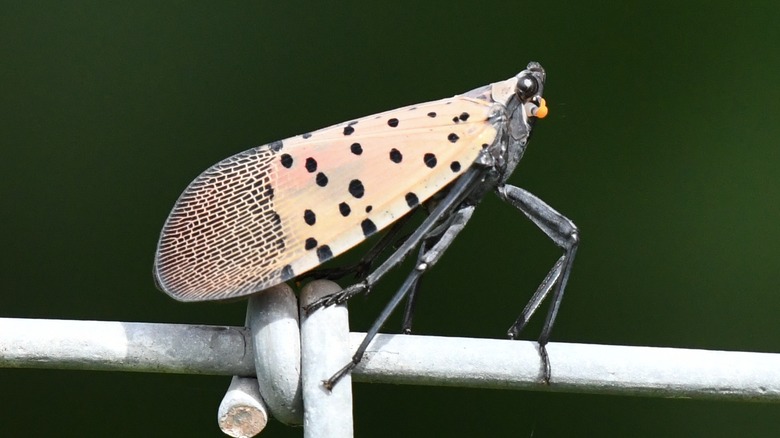Vampire-Like Insects Might Mean A Wine Shortage This Year
An unexpected culprit might come between Americans and their wine this year — a potentially huge problem when you consider just how much wine is consumed around the holidays. According to Liz Palmer, a 2017 Nielson Study reveals Christmas, New Year's, and Thanksgiving are the top three wine holidays. In the year the study was conducted, over a billion dollars were spent on wine between Christmas and New Year's, and more than $8 million was spent on wine for Thanksgiving dinner.
If the news of a shortage concerns you, you might compare its impact to a previous year. In 2021, a glass bottle shortage made it difficult to keep shelves stocked for the holidays, per USA Today. "If you don't have the bottles that you need, how are you going to get the product out of barrels and to customers?" Michael Kaiser, vice president of government affairs at WineAmerica, said. This year, the shortage isn't the fault of the supply chain, but rather a type of bug that's begun wreaking havoc in vineyards (per CNBC).
One winery lost more than $500,000 to bugs
According to CNBC, an invasive species called the spotted lanternfly has been feeding on the United States' grapevines used to produce wine. The Asian-hailing insect was first spotted in Pennsylvania in 2014, and according to Penn State professor Julie Urban, there are likely billions in the states today. "There's potential for the lanternfly to be right up there among the most serious things that could impact a vineyard," Urban said. "The true story is going to depend on how far it spreads."
After Stony Run Winery was hit by the lanternflies, owner Larry Shrawder experienced a huge loss. "For quite a while, we thought we were just going to be out of business. The 15% of the vineyard we lost translates to about 30,000 bottles per year and about $525,000 worth of product a year that was taken out by the flies," said Shrawder.
According to Modern Farmer, squishing the bugs as soon as they're detected is the most effective way to decrease the population. Beyond that, vineyard owners should capture them in a bottle, locate and scrape off eggs, introduce predators such as cats, dogs, and ducks, and plant milkweed. Per Planet Princeton, spraying weeds with vinegar and wrapping areas with sticky paper are also effective methods.
Hopefully, if the insects are deterred early enough, we won't have a problem enjoying a glass of vino wintertime.

